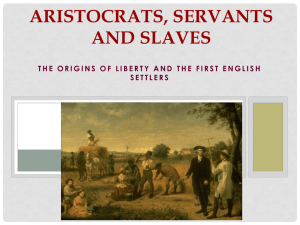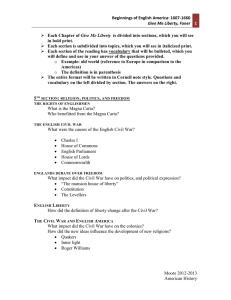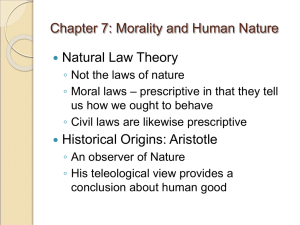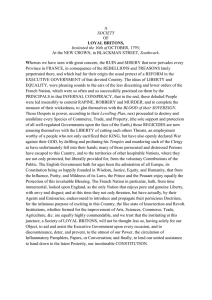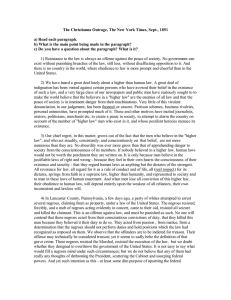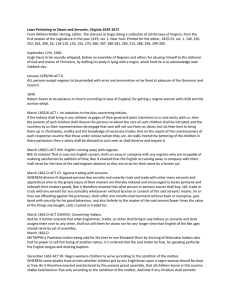New-York Packet,
advertisement
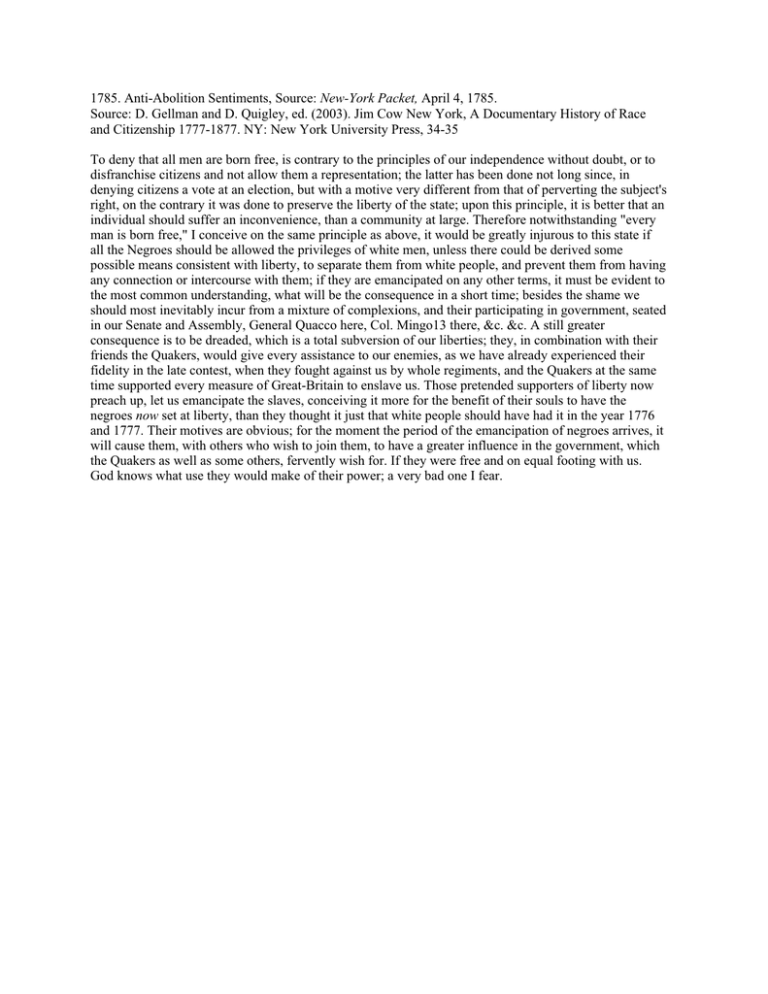
1785. Anti-Abolition Sentiments, Source: New-York Packet, April 4, 1785. Source: D. Gellman and D. Quigley, ed. (2003). Jim Cow New York, A Documentary History of Race and Citizenship 1777-1877. NY: New York University Press, 34-35 To deny that all men are born free, is contrary to the principles of our independence without doubt, or to disfranchise citizens and not allow them a representation; the latter has been done not long since, in denying citizens a vote at an election, but with a motive very different from that of perverting the subject's right, on the contrary it was done to preserve the liberty of the state; upon this principle, it is better that an individual should suffer an inconvenience, than a community at large. Therefore notwithstanding "every man is born free," I conceive on the same principle as above, it would be greatly injurous to this state if all the Negroes should be allowed the privileges of white men, unless there could be derived some possible means consistent with liberty, to separate them from white people, and prevent them from having any connection or intercourse with them; if they are emancipated on any other terms, it must be evident to the most common understanding, what will be the consequence in a short time; besides the shame we should most inevitably incur from a mixture of complexions, and their participating in government, seated in our Senate and Assembly, General Quacco here, Col. Mingo13 there, &c. &c. A still greater consequence is to be dreaded, which is a total subversion of our liberties; they, in combination with their friends the Quakers, would give every assistance to our enemies, as we have already experienced their fidelity in the late contest, when they fought against us by whole regiments, and the Quakers at the same time supported every measure of Great-Britain to enslave us. Those pretended supporters of liberty now preach up, let us emancipate the slaves, conceiving it more for the benefit of their souls to have the negroes now set at liberty, than they thought it just that white people should have had it in the year 1776 and 1777. Their motives are obvious; for the moment the period of the emancipation of negroes arrives, it will cause them, with others who wish to join them, to have a greater influence in the government, which the Quakers as well as some others, fervently wish for. If they were free and on equal footing with us. God knows what use they would make of their power; a very bad one I fear.


